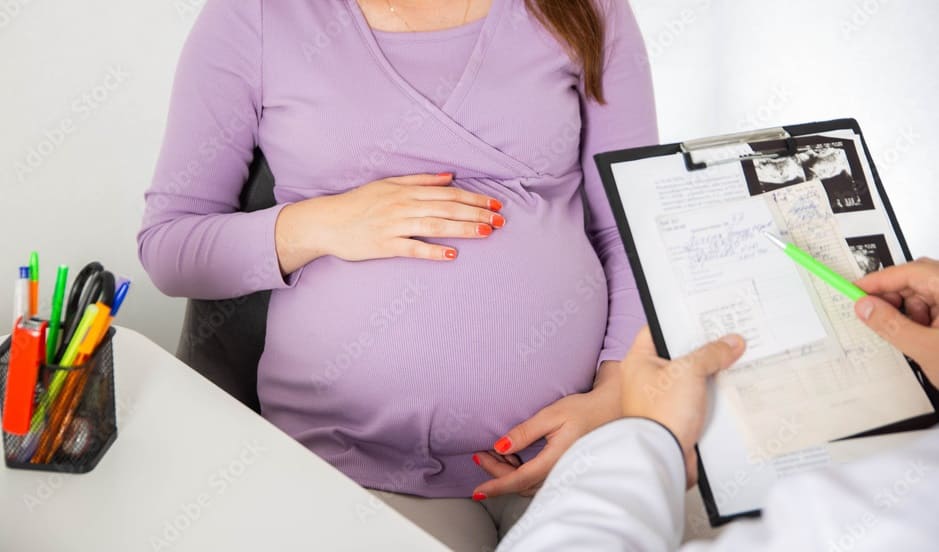Pregnancy is a beautiful yet demanding journey for a woman’s body. While the body nurtures and supports a growing baby, it also undergoes significant changes that can sometimes lead to health challenges. One such common issue is anemia during pregnancy. But why does it happen? And how can expectant mothers manage it effectively? Let’s hear from the experts.
What is Anemia?
Anemia occurs when the body does not have enough red blood cells or hemoglobin to carry adequate oxygen to tissues. Hemoglobin is a protein in red blood cells that binds oxygen and transports it to the body’s organs and tissues. During pregnancy, the body produces extra blood to support the developing baby. If a woman does not consume enough iron and other essential nutrients, her body may struggle to keep up with this demand, leading to anemia.
Types of Anemia During Pregnancy
There are several types of anemia that can affect pregnant women:
1) Iron-Deficiency Anemia – The most common type, caused by insufficient iron intake, which leads to reduced hemoglobin production.
2) Folate-Deficiency Anemia – Caused by a lack of folic acid, which is essential for red blood cell formation.
3) Vitamin B12 Deficiency Anemia – Results from inadequate Vitamin B12 intake, affecting red blood cell production and nervous system function.
4) Hemolytic Anemia – Occurs when the body destroys red blood cells faster than it can replace them.
5) Aplastic Anemia – A rare but serious condition where the bone marrow fails to produce enough blood cells.
Why is Anemia Common in Pregnancy?
According to medical experts, anemia in pregnancy is common due to several factors:
1) Increased Blood Volume – A pregnant woman’s blood volume increases by about 50% to support the growing fetus. This requires more hemoglobin, which depends on adequate iron intake.
2) Iron Deficiency – Iron is crucial for producing hemoglobin. Many women enter pregnancy with low iron stores, making them more susceptible to anemia. Additionally, iron absorption can be affected by poor diet or conditions like celiac disease.
3) Folic Acid Deficiency – Folic acid plays a key role in red blood cell production. A deficiency can contribute to anemia and increase the risk of birth defects like neural tube defects.
4) Vitamin B12 Deficiency – Some women, especially those following vegetarian or vegan diets, may lack enough Vitamin B12, leading to reduced red blood cell formation and neurological complications.
5) Multiple Pregnancies – Women carrying twins or more have higher blood volume requirements, increasing the risk of anemia due to increased nutrient demands.
6) Frequent Pregnancies – Having pregnancies close together does not allow the body sufficient time to replenish iron and other nutrient stores, leading to a higher risk of anemia.
7) Morning Sickness – Severe nausea and vomiting (hyperemesis gravidarum) can limit food intake, causing deficiencies in essential nutrients like iron, folic acid, and Vitamin B12.
8) Blood Loss During Delivery – Women who experience excessive blood loss during childbirth are at a higher risk of postpartum anemia.
Symptoms of Anemia in Pregnancy
Mild anemia may not cause noticeable symptoms, but as it worsens, women may experience:
- Fatigue and weakness
- Pale skin, lips, and nail beds
- Shortness of breath
- Dizziness or lightheadedness
- Rapid heartbeat or irregular heart rhythms
- Difficulty concentrating or memory issues
- Cold hands and feet
- Cravings for non-food items like ice, dirt, or starch (a condition known as pica)
How to Prevent and Manage Anemia During Pregnancy?
Experts recommend the following strategies to prevent and manage anemia:
1) Consume Iron-Rich Foods – Include iron-rich foods like lean meats, poultry, fish, eggs, leafy greens (spinach, kale), beans, lentils, nuts, seeds, tofu, and iron-fortified cereals.
2) Take Prenatal Vitamins – A good prenatal vitamin with iron and folic acid helps meet daily nutritional needs.
3) Enhance Iron Absorption – Pair iron-rich foods with Vitamin C sources like citrus fruits, strawberries, tomatoes, and bell peppers for better absorption.
4) Limit Caffeine Intake – Coffee and tea contain tannins that can interfere with iron absorption, so limit consumption.
5) Avoid Calcium-Rich Foods During Iron Intake – Dairy products and calcium supplements can block iron absorption, so take them separately from iron-rich meals.
6) Monitor Regularly – Routine blood tests during pregnancy help detect anemia early.
7) Consider Iron Supplements – If diet alone is insufficient, doctors may recommend iron supplements. These should be taken with Vitamin C to improve absorption and reduce side effects like constipation.
8) Stay Hydrated – Drinking plenty of water helps blood circulation and overall nutrient absorption.
9) Increase Folate Intake – Eat foods high in folic acid, such as dark leafy greens, citrus fruits, legumes, and fortified grains.
10) Check Vitamin B12 Levels – Include sources like dairy, eggs, poultry, and fortified plant-based alternatives if following a vegetarian or vegan diet.
Potential Complications of Untreated Anemia in Pregnancy
If anemia is left untreated, it can lead to serious complications, including:
1) Preterm Birth – Anemia increases the risk of delivering the baby before 37 weeks.
2) Low Birth Weight – Babies born to anemic mothers may have lower birth weights, which can lead to health issues.
3) Developmental Delays – Severe anemia can affect a baby’s brain development and increase the risk of cognitive impairments.
4) Postpartum Depression – Anemic mothers may experience increased fatigue and a higher risk of postpartum depression.
5) Increased Maternal Mortality – In extreme cases, severe anemia can lead to heart failure or complications during delivery.
Final Thoughts
Anemia during pregnancy is a common but manageable condition. By ensuring a nutrient-rich diet, taking prenatal vitamins, and attending regular prenatal checkups, expectant mothers can maintain healthy iron levels for themselves and their babies. If you suspect anemia, consult a healthcare provider for proper guidance and treatment. A healthy pregnancy starts with a well-nourished body!
Also Read:
